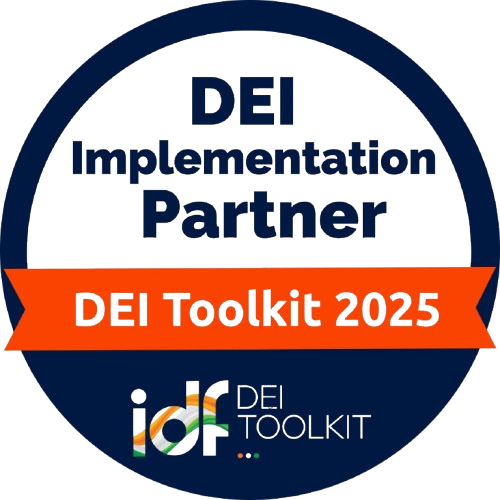Emotional intelligence, often abbreviated as EQ, is the ability to understand, use, and manage our emotions in positive ways. It helps us to relieve stress, communicate effectively, empathize with others, overcome challenges, and defuse conflict. EQ isn’t just about being nice or calm; it’s a crucial skill set that influences our behavior and relationships in profound ways. In the corporate world, where interactions are frequent and the stakes high, emotional intelligence can make the difference between success and failure.
What is Emotional Intelligence?
Emotional intelligence is typically divided into four core skills:
- Self-awareness: Recognizing your own emotions and how they affect your thoughts and behavior.
- Self-management: Controlling impulsive feelings and behaviors, managing your emotions in healthy ways, taking initiative, and following through on commitments.
- Social awareness: Understanding the emotions, needs, and concerns of other people, picking up on emotional cues, feeling comfortable socially, and recognizing the power dynamics in a group or organization.
- Relationship management: Developing and maintaining good relationships, communicating clearly, inspiring and influencing others, working well in a team, and managing conflict.
Importance of EQ in the Workplace
Narayana Murthy: “Our assets walk out of the door each evening. We have to make sure that they come back the next morning.”
In the fast-paced, high-pressure environment of modern businesses, technical skills alone are not sufficient for success. Emotional intelligence plays a pivotal role in several key areas:
1. Leadership
Leaders with high EQ can make better decisions, handle stress more effectively, and inspire their teams. They are adept at managing their own emotions and can navigate the emotional complexities of the workplace to foster a positive and productive environment. One of our clients, a leading technology firm, reported a significant improvement in team performance and morale after implementing EQ training for their managers.
2. Teamwork
Teams with high collective EQ function more cohesively. Team members communicate more effectively, understand each other better, and manage conflicts constructively. This leads to enhanced collaboration and productivity. For instance, another client, a large manufacturing company, saw a 20% increase in project completion rates after investing in team-building activities focused on emotional intelligence.
3. Employee Engagement
Employees with high EQ are more engaged and satisfied with their jobs. They can manage work-related stress better and maintain a positive outlook, which translates into higher job satisfaction and reduced turnover. One of our clients, a major retail chain, noticed a significant drop in employee turnover after incorporating EQ principles into their employee engagement strategy.
4. Customer Relations
In roles that involve customer interaction, high EQ is essential. Employees who can empathize with customers and manage their own emotional responses are better equipped to handle customer complaints and provide superior service. Our experience with a financial services client revealed that EQ training for customer service representatives led to a 30% improvement in customer satisfaction scores.
Take for example The Tata Group, one of India’s largest and most respected conglomerates, places a strong emphasis on emotional intelligence in its leadership training programs. Ratan Tata, the former chairman, is known for his empathetic leadership style. He has often emphasized the importance of understanding and valuing employees’ emotions and contributions. This approach has helped Tata Group maintain a positive work culture and high employee satisfaction.
Strategies to Improve EQ
Improving emotional intelligence is a continuous process that involves self-reflection, practice, and learning. Harvard Business School places EI as top skill to develop to improve your Business Acumen. https://online.hbs.edu/blog/post/emotional-intelligence-in-leadership Here are some strategies to enhance your EQ:
1. Practice Self-awareness
- Reflect on your emotions: Spend a few minutes each day reflecting on your emotions and how they affect your behavior.
- Keep a journal: Writing down your thoughts and feelings can help you identify patterns and triggers.
- Seek feedback: Ask trusted colleagues for feedback on your emotional responses and interactions.
2. Enhance Self-management
- Practice mindfulness: Mindfulness techniques, such as meditation and deep breathing, can help you stay calm and focused.
- Develop coping strategies: Identify healthy ways to manage stress, such as exercise, hobbies, or talking to a friend.
- Set goals: Having clear, achievable goals can help you stay motivated and focused.
3. Improve Social Awareness
- Pay attention to body language: Non-verbal cues can provide valuable insights into others’ emotions.
- Listen actively: Focus on what others are saying without interrupting or planning your response.
- Show empathy: Try to understand others’ perspectives and validate their feelings.
4. Strengthen Relationship Management
- Communicate clearly: Use clear and concise language to avoid misunderstandings.
- Manage conflicts constructively: Approach conflicts with a problem-solving mindset and seek win-win solutions.
- Build rapport: Take time to build positive relationships with your colleagues through genuine interactions.
Conclusion
Emotional intelligence is a critical component of corporate success. It enhances leadership, teamwork, employee engagement, and customer relations. Indian corporates that focus on EQ have demonstrated the profound impact it can have on organizational culture and performance. By practicing self-awareness, self-management, social awareness, and relationship management, individuals can enhance their EQ and contribute to a more positive and productive workplace.
Embracing emotional intelligence not only leads to personal growth but also fosters a work environment where everyone can thrive. As Indian corporates continue to evolve and face new challenges, EQ will remain a key driver of success.

